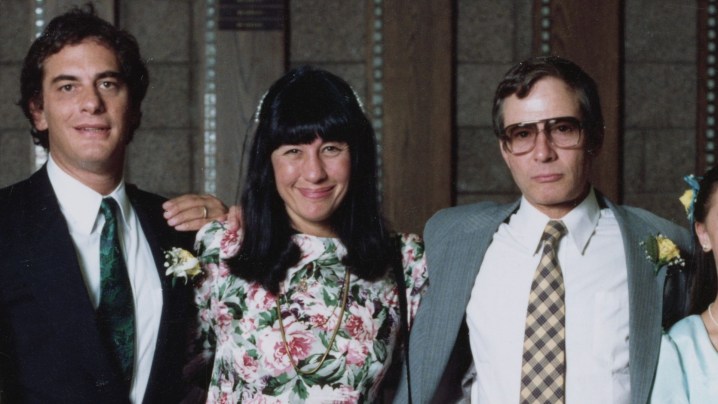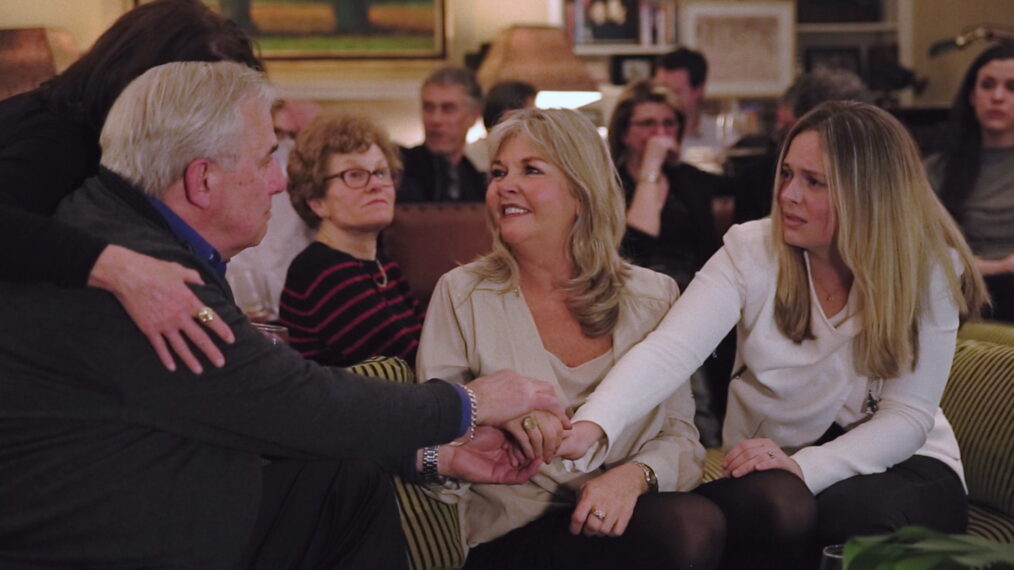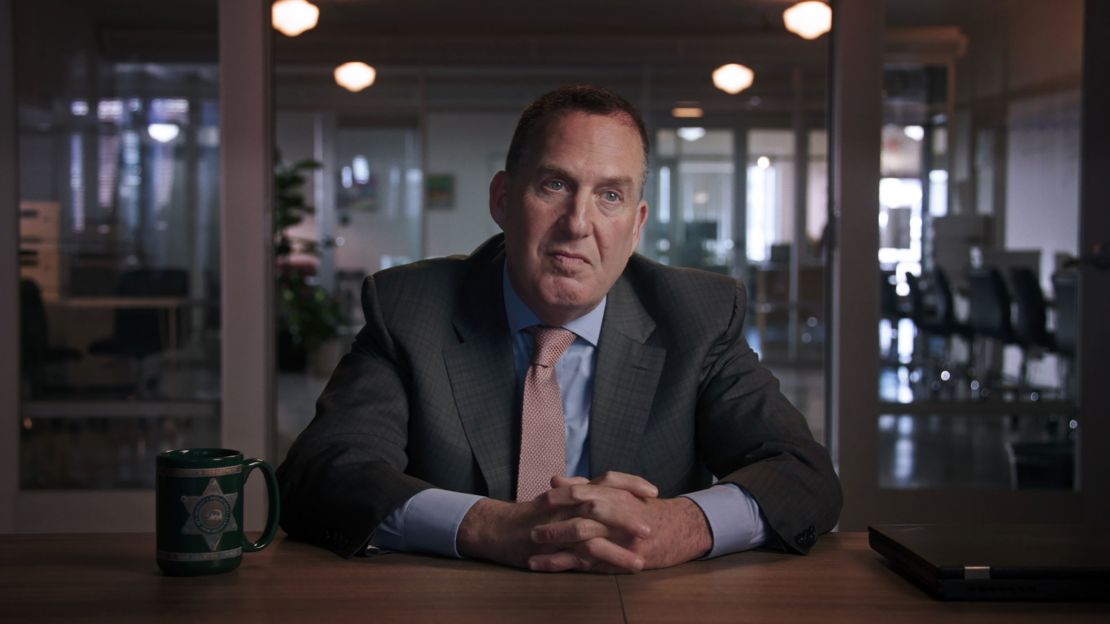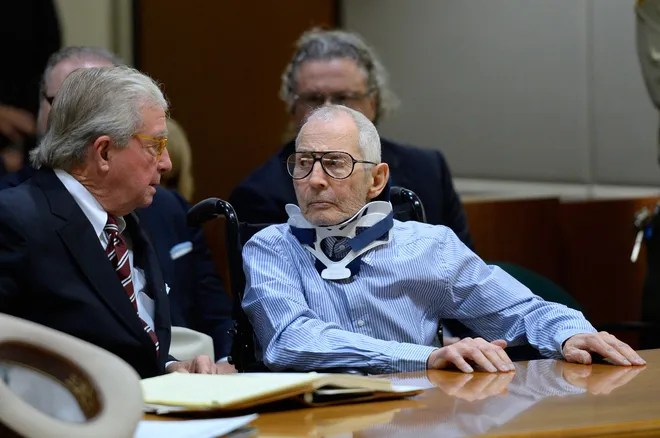On March 15, 2015, the most infamous hot mic moment ever to air on television shocked the world. Real estate scion Robert Durst, who had been implicated, but had thus far escaped justice in three murders committed from 1982 to 2003, inexplicably agreed to sit for a series of interviews with filmmaker Andrew Jarecki. The director had made a fictional feature film, All Good Things, that was loosely based on the disappearance of Durst’s first wife, Kathie, starring Barbie actor Ryan Gosling and Civil War‘s Kirsten Dunst.
Confronted, finally, with near-irrefutable evidence collected by Jarecki’s team that seemed to implicate Durst in the murder of his best friend Susan Berman in 2001, Durst lumbered off to the bathroom, where, forgetting his microphone was still on, he murmured, “What the hell did I do? Killed them all, of course.” Such was the ending of The Jinx, a phenomenon for HBO when it aired more than nine years ago. But there was more story still to tell, and Jarecki’s follow-up, The Jinx: Part Two, now airing on HBO and streaming on Max, bucks the odds by sustaining the intensity and pure weirdness with which The Jinx concluded nearly a decade ago.
A new cast of larger-than-life characters

Jarecki’s approach to telling Durst’s story, of which his own on-camera presence has always been a significant part, runs the risk of skirting self-promotion. It would therefore be easy to dismiss Jarecki’s follow-up series as an attempt to chase the highs of 2015, when he won two Emmys and became the talk of Hollywood. But Durst’s confession was followed by events of truly high drama – a desperate bid for an escape to Cuba, a dramatic arrest, a high-profile trial – featuring fantastically unlikely characters not even touched upon in The Jinx’s first outing.
Such a figure is Nick “Chinga” Chavin, a rhinestone-studded singer of pornographic country songs turned white-collar advertising executive, who in the 1980s became the third in the trio of bosom buddies that also included Durst and Berman. Chavin’s hugely reluctant contributions to the Los Angeles County prosecution of Durst for Berman’s murder are illustrative of the bizarre Svengali’s hold Durst had over his closest circle of friends, a hold that mirrors the can’t-look-away obsession HBO viewers still feel for the lizard-eyed Durst despite themselves.
Telling the story of its own impact

Most fascinating, however, is the unavoidable reality that the release of the original Jinx was the spur that reignited law enforcement’s pursuit of Durst after a decade of inaction. (Durst was never charged in the disappearance of his wife, nor was he initially charged in Berman’s murder. He was tried and acquitted of the murder of his neighbor Morris Black in 2003, based on the remarkable legal argument that his dismembering and disposing of Black’s body in Galveston Bay did not necessarily mean that he had killed him.)
The one thing the comprehensive 2015 Jinx could not, by definition, cover was its own impact, and Part Two has the unenviable metatextual responsibility of analyzing its effect on the ongoing case. It does so with gusto. The first episode features a hugely cathartic sequence in which the families of Durst’s alleged victims are gathered to watch the finale of The Jinx season 1, which manages the emotional trick to which all the masterpieces of the true crime era have aspired – successfully transmogrifying we the audience of an arguably exploitative show into members of a team of avenging angels, acting on behalf of aggrieved and betrayed people whom the law enforcement system has failed.
Parallels between Jarecki and law enforcement

Admirably, Jarecki avoids patting himself on the back too much, even though it was his team that alerted the L.A. District Attorney’s Office to the new evidence that moved the chains on the Berman case. Instead, he focuses on the dogged efforts of Assistant Los Angeles District Attorney John Lewin, himself a self-consciously telegenic figure who appears to be auditioning for his own reality series. Specializing in cold cases, Lewin’s main approach, in the early going of Part Two, appears to be calling and badgering witnesses on the phone, matching them scream for scream, and then hanging up in disgust.
Haphazard and melodramatic as Lewin can sometimes appear, Part Two draws an unmistakable parallel between Lewin’s team and Jarecki’s – each must cozy up to grotesque figures of questionable humanity (Chavin delivers the instantly iconic observation “I just don’t have that same moral hatred of murder and murderers.”), stroking their egos and applying pressure where it counts, in order to secure the revelations that will stir up the necessary media sensation.
More surprises await in Part Two

The trial, which eventually secured Durst’s conviction for murder and a sentence of life without parole in 2021, followed by his death in prison in 2022, promises to offer opportunities for similarly thoughtful consideration and skillful melodramatics on Jarecki’s part. (Two episodes of six have aired thus far.) A highlight of the upcoming episodes will surely be the innumerable and almost anti-karmic delays to the start of the trial, which ensued after Durst’s arrest in 2015 – Hurricane Harvey, Durst’s diagnosis with bladder cancer, and, of course, the pandemic.
This story feels necessary to tell. After all, in the public imagination, the righteous indignation incurred by a tale of justice avoided must eventually be assuaged by a tale of justice done. Of course, as the golden age of TV/podcast true crime begins to recede, imperfections and instances of conspicuous subjectivity begin to appear in installations like The Jinx, Making a Murderer, and Serial.
The Jinx: Part Two isn’t necessarily interested in reflecting on criticisms of its first iteration (like revelations that that extraordinary hot mic moment had been edited for clarity and effect), nor should it be. The lesson of Part Two is that the legal system’s responsibilities in the case of Robert Durst, as represented by Lewin and his team, are ultimately completely disparate from Jarecki’s responsibility, which is to tell a good story. In that respect, Part Two succeeds completely.
You can watch and stream The Jinx on HBO and Max.
Editors’ Recommendations
